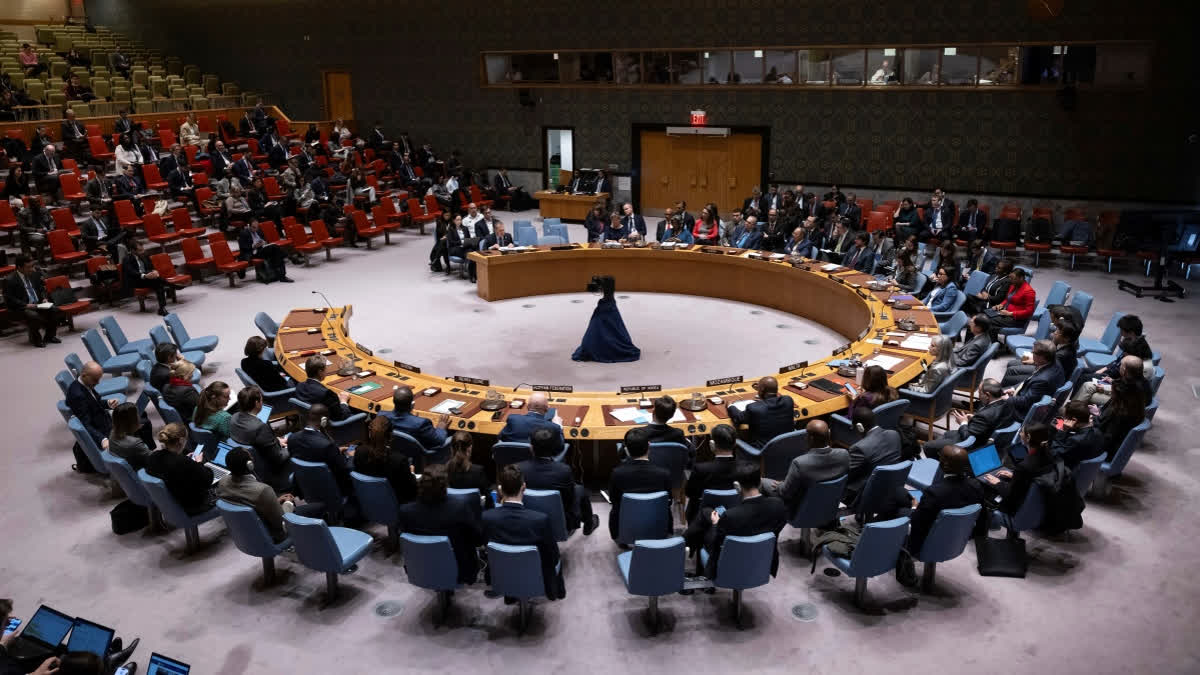United Nations: The U.N. Security Council is set to vote on a resolution demanding a humanitarian cease-fire in Gaza during the Muslim holy month of Ramadan, but the United States warned the measure could hurt negotiations to halt Israeli-Hamas hostilities.
The resolution, put forward by the 10 elected council members, is backed by Russia and China, who vetoed a U.S.-sponsored resolution Friday that supported "an immediate and sustained cease-fire" in the Israel-Hamas war in Gaza.
The 22-nation Arab Group at the U.N. issued a statement Friday night appealing to all 15 council members "to act with unity and urgency" and vote for the resolution "to halt the bloodshed, preserve human lives and avert further human suffering and destruction."
"It is long past time for a cease-fire," the Arab Group said. Ramadan began March 10 and ends April 9.
The council scheduled a vote on the resolution Saturday morning (10 a.m. EDT). Many members are hoping that the U.N.'s most powerful body, which is charged with maintaining international peace and security, will demand an end to the war that began after Gaza's Hamas rulers launched a surprise attack into southern Israel on Oct. 7, killing about 1,200 people and taking some 250 others hostage.
Since then, the Security Council has adopted two resolutions on the worsening humanitarian situation in Gaza, but none has called for a cease-fire.
More than 32,000 Palestinians in Gaza have been killed during the fighting, according to the Gaza Health Ministry. It does not differentiate between civilians and combatants in its count, but says women and children make up two-thirds of the dead.
Gaza also faces a dire humanitarian emergency, with a report from an international authority on hunger warning this week that "famine is imminent" in northern Gaza and that escalation of the war could push half of the territory's 2.3 million people to the brink of starvation.
The brief resolution scheduled for a vote Saturday demands an immediate humanitarian cease-fire for Ramadan "leading to a permanent sustainable cease-fire." It also demands "the immediate and unconditional release of all hostages " and emphasizes the urgent need to protect civilians and deliver humanitarian aid throughout the Gaza Strip.
U.S. Ambassador Linda Thomas-Greenfield told the council after Friday's vote that the resolution's current text "fails to support sensitive diplomacy in the region. Worse, it could actually give Hamas an excuse to walk away from the deal on the table."
"We should not move forward with any resolution that jeopardizes the ongoing negotiations" being carried out by the United States, Qatar and Egypt, she said, warning that if the diplomacy isn't supported, "we may once again find this council deadlocked."
"I truly hope that that does not come about," Thomas-Greenfield said.
The United States has vetoed three resolutions demanding a cease-fire in Gaza, the most recent an Arab-backed measure. That measure was supported by 13 members with one abstention in a Feb. 20 vote.
Russia and China vetoed a U.S.-sponsored resolution in late October calling for pauses in the fighting to deliver aid, the protection of civilians and a halt to arming Hamas. They said it did not reflect global calls for a cease-fire. They again vetoed the U.S. resolution on Friday, calling it ambiguous and saying it was not the direct demand to end the fighting that much of the world seeks.
